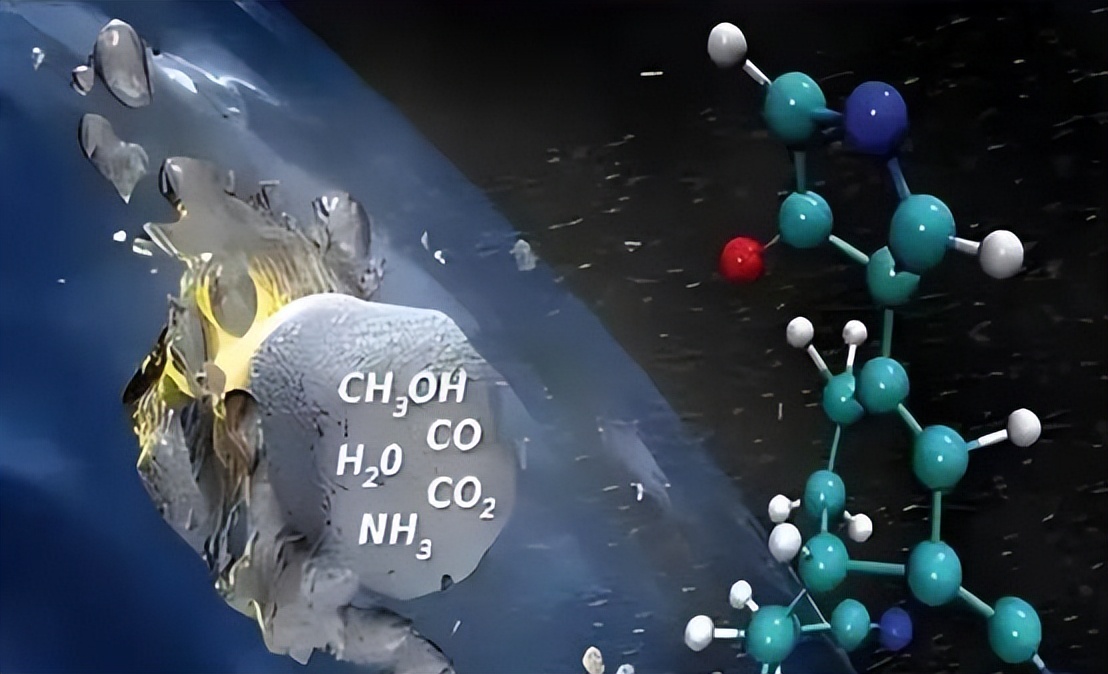During this time, many people are talking about the "Japanese probe found amino acids", especially in many media reports, this discovery has been compared to "the first confirmation of the source of life outside the earth", which also makes people believe that life has long been spread throughout the universe.

But is this really the case? What many people don't know is that in fact, as early as many years ago, scientists have discovered amino acids outside the earth, and the so-called "amino acids are the source of life", which also comes from the hypothesis of the origin of life on earth, which is not true.
So, why did the discovery of amino acids in Japan's Hayabusa this time cause such a sensation?
From the data point of view, as early as 2004, nasa in the United States has been in the probe "Stardust" collected comet "Wilder 2" dust particle samples, found the existence of amino acids, but considering the probe brought back the comet sample, it may also be contaminated by the Earth's environment, so the amino acids were detected, so this result was not officially announced until 2009.
To put it simply, nasa researchers at that time spent more than 5 years to exclude the possibility that the amino acids in the Wilder 2 sample were from Earth from all aspects, and finally confirmed that in addition to Earth, amino acids also exist on other planets in the universe.
After that, many probes have found the existence of amino acids in more comets, even in the atmosphere of Venus, especially when Venus found amino acids, it was also a sensation, and it was believed that it must be related to "Venus life", but later many experts interpreted it, and people finally understood that the discovery of amino acids does not mean the discovery of extraterrestrial life.
In fact, the same is true of the results of the Japanese Hayabusa detection this time. You know, even as early as 2020, there are scientists in the meteorite found proteins, you know, in fact, the discovery of proteins, than the discovery of amino acids, more people to believe in the existence of "extraterrestrial life", but at that time, scientists did not "cut through the iron" like this time, saying that it is basically equivalent to confirming the existence of life in the universe.
It can be said that many people think that the discovery of the "Hayabusa" this time is to confirm the existence of extraterrestrial life netizens, are "white excited", many people are also used by the media "unprecedented", "amino acids are the source of life" such a statement to misled, researchers said that from a scientific point of view, amino acids can not be equated with the source of life, at least with the current research results, we can not do it.
So, since amino acids are not necessarily the source of life, how did this statement come about?
Before Darwin proposed the theory of evolution, people thought that everything in the world was "divinely created", but no one knew where God came from. Later, with the development of human science, in 1953, scientists at the University of Chicago in the United States simulated the environment of the early Earth in the laboratory and carried out a classic experiment related to the "origin of life", which is also known as the "Miller experiment".
In the experiment, scientists found that life on Earth may come from a series of chemical processes, in short, lightning makes the inorganic molecules of the Earth become organic molecules (including amino acids), and then, through a series of chemical reactions, organic molecules continue to change, and eventually become multimolecular systems, until the first life appears on Earth.
The scientific community has named this hypothesis "chemical evolution", and everyone needs to pay attention to a word "hypothesis" here. It is a conjecture based on experiments, or analysis and research such as big data, and it is not true.
In addition, the process of the origin of life is very complex, the existence of amino acids, but also only to the "origin of carbon-based organisms" on the earth as a reference, providing a possibility, in fact, the discovery of it represents the discovery of extraterrestrial life, which is far from enough, unless one day, we can find "cells" outside the earth, which means that extraterrestrial life really exists.
So, will there be life beyond the Earth?
From the mainstream point of view, the answer seems to be true. After all, research believes that the number of star systems in the Milky Way alone is at least 100 billion, and this is still very conservative data.
Looking at the cosmic range that human beings have now detected - 93 billion light years in diameter, among them, the number of large galaxies like the Milky Way, and conservative estimates are at least 200 billion, it is conceivable that the number of habitable planets will be how many, naturally, extraterrestrial life will also exist.
However, one of the questions that human beings still need to ponder is: Is extraterrestrial life really the same as life on Earth, following the same origin and evolutionary path? Is extraterrestrial life really carbon-based like us? Before we can find answers to these questions, we are still very far from really confirming the existence of extraterrestrial life.